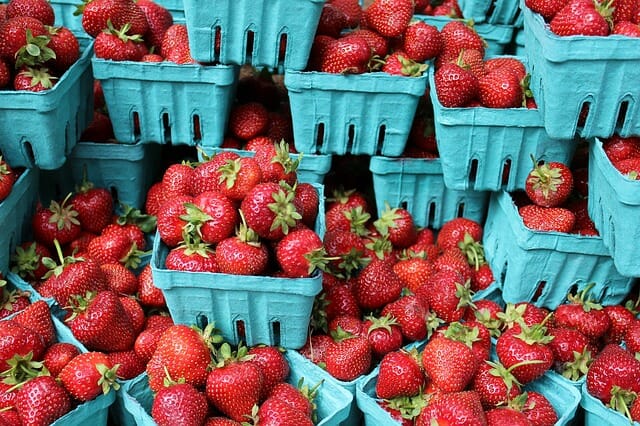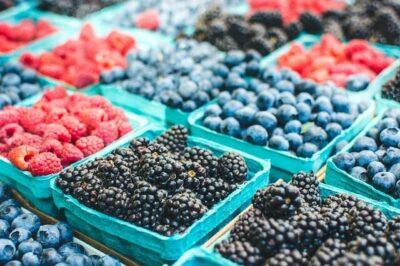Does your delicious homemade goat cheese elicit requests to buy it? If so, unless you are a licensed home producer—which likely involved having to spend thousands of dollars on facilities and equipment and jumping through many hoops—unfortunately you probably have to turn away potential customers and much-needed cash.
Whether you make goat cheese, raise poultry or livestock for meat, have an excess of fresh cow’s milk available, or produce any other kind of value-added farm product, it may be illegal for you to sell directly to consumers. This creates a lose-lose situation, leaving the neighbor who would gladly pay for fresh farm products having to instead buy elsewhere, and leaving the farmer with more food and less money than needed.
One place this is no longer true is in the state of Maine. New bipartisan legislation now gives local communities the authority to regulate—or not regulate—the sale of farm products directly to consumers. Known as “the food sovereignty bill,” Legislative Document No. 725, “An Act to Recognize Local Control Regarding Food and Water Systems,” was introduced by Democratic legislators, widely supported on both sides of the political aisle, and signed into law by a Republican governor. Although Maine is the first state in the nation to enact such a law, there is widespread public outcry for this kind of food freedom to take hold across the nation.
Maine’s LD 725 states in summary that it “…authorizes municipal governments to regulate local food systems and the transport of water for commercial purposes by ordinance and requires the State to recognize such ordinances.” In short, towns and cities in Maine can now allow farm fresh food to be produced and sold within the municipality without the risk of any interference from the state.
Learn Everything You Don’t Know In “The Big Book Of Off The Grid Secrets”!
More than a dozen Maine communities have already adopted local food sovereignty ordinances, beginning with the landmark legislation in the tiny town of Sedgwick in 2011. But without the state recognizing their authority to do so, the municipal ordinances had minimal real-life impact at the time. The newly passed state law changes everything.
The cost of setting up production according to state regulations in most areas of the country is unrealistic for small producers. Creating a licensed facility can cost tens of thousands of dollars, making it out of the question for small family farms wanting to sell small batches of homemade pickles or raw dairy products made on the kitchen stovetop or a few dozen humanely processed meat birds. But the new food sovereignty law allows purchases of those kinds of products to be overseen by towns and cities, setting the stage for far more opportunities for farmers and freedom of choice for consumers. If the fast-growing list of Maine municipalities creating laws to allow such activity is any indication, government intervention in farm-to-table food sales could soon be a thing of the past.
What Opponents Are Saying
Not everyone approves of the new law. There has been some pushback from some state entities, as well as from some farmers and food-producing organizations. They fear that food safety is at risk, along with product reputation. Allowing food to be marketed directly to consumers without any inspections or safety measures in place could set us back into a bygone era when the risk of foodborne illness was far greater than it is today, according to some opponents.
Supporters of food sovereignty, however, applaud the way it will allow people to interact personally with food producers and make their own decisions about whether or not they trust their food handling practices.
Food sovereignty proponents in Maine and across the nation have long been advocating for the wisdom of people being allowed to take control of their own health and safety choices. Well-known farmer and food freedom advocate Joel Salatin has written extensively about the value of transparency in food production—instead of letting the government decide whether his own poultry processing facility uses safe handling practices, he encourages consumers to come see for themselves.
There are a few caveats. The law allows for sales of food products only within the community, meaning that farmers in very small towns will still have a very limited pool of possible customers. And if the world’s best goat cheese is made in a farm kitchen a few towns over, it will still not be legal to purchase it directly.
Rules for farmers’ markets will likely not be affected. Being comprised of an aggregate of farmers and products from several different towns, they will still use state guidelines. However, many vendors at commercial markets represent larger farms for whom the licensing procedure is more manageable and is already in place.
Maine’s new food sovereignty law is by no means perfect. But for those seeking the ability to buy and sell food the old-fashioned way, it is a great place to start.
What do you think about the law? Share your thoughts in the section below:
 Off The Grid News Better Ideas For Off The Grid Living
Off The Grid News Better Ideas For Off The Grid Living




